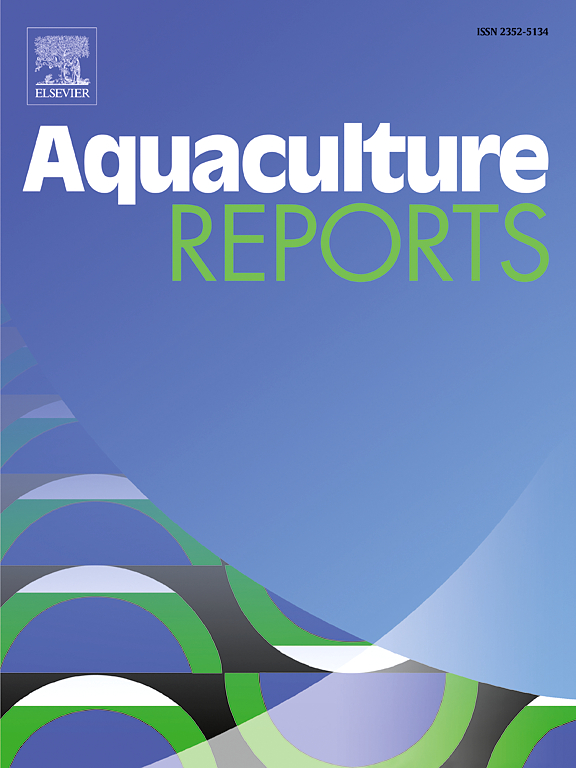Effects of Enteromorpha prolifera polysaccharide on intestinal health of spotted sea bass Lateolabrax maculatus
IF 3.2
2区 农林科学
Q1 FISHERIES
引用次数: 0
Abstract
Enteromorpha prolifera polysaccharide (EPP) is a kind of seaweed polysaccharide with outstanding biological activity. In this study, a 49-day culture trial was conducted to explore the effects of dietary EPP on intestinal health in spotted sea bass. Six experimental diets containing 0, 3, 6, 9, 12, and 15 g/kg EPP were formulated. A total of 540 similarly sized and healthy spotted sea bass were randomly assigned to 6 groups and fed the respective diet. The results showed that dietary EPP supplementation significantly improved the activity of digestive enzymes, including amylase, lipase, and trypsin, and reduced the permeability of the intestinal mucosa, which was shown to significantly reduce the content of D-lactic acid and the activity of diamine oxidase in serum. On the other hand, intestinal villi length and muscle thickness increased significantly, and intestinal tissue morphology improved. Dietary EPP also changed intestinal microbial composition, increased Firmicutes abundance, and increased intestinal microbial diversity. Transcriptome results suggest that EPP may improve intestinal tissue morphology and intestinal barrier function by up-regulating tight junction protein 1 (TJP1) and zona occludens 1 (ZO-1) genes, thereby improving intestinal health. In addition, significant changes in several inflammatory factor genes were observed. EPP may have enormous potential for regulating immune and inflammatory responses. In conclusion, dietary EPP can significantly improve the intestinal health of spotted sea bass.
求助全文
约1分钟内获得全文
求助全文
来源期刊

Aquaculture Reports
Agricultural and Biological Sciences-Animal Science and Zoology
CiteScore
5.90
自引率
8.10%
发文量
469
审稿时长
77 days
期刊介绍:
Aquaculture Reports will publish original research papers and reviews documenting outstanding science with a regional context and focus, answering the need for high quality information on novel species, systems and regions in emerging areas of aquaculture research and development, such as integrated multi-trophic aquaculture, urban aquaculture, ornamental, unfed aquaculture, offshore aquaculture and others. Papers having industry research as priority and encompassing product development research or current industry practice are encouraged.
 求助内容:
求助内容: 应助结果提醒方式:
应助结果提醒方式:


